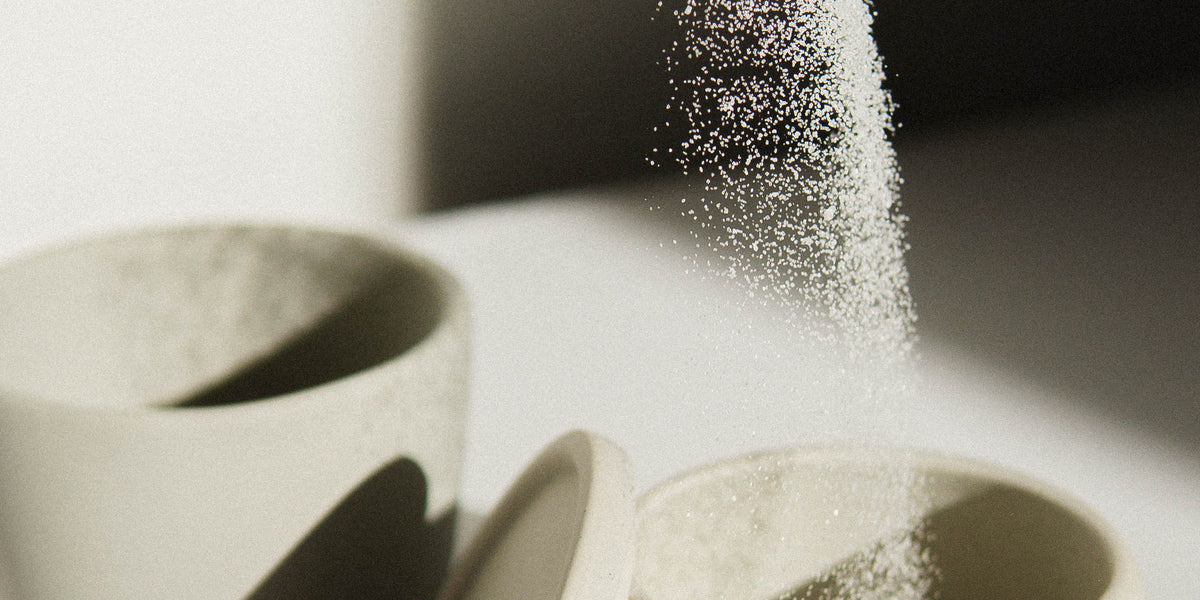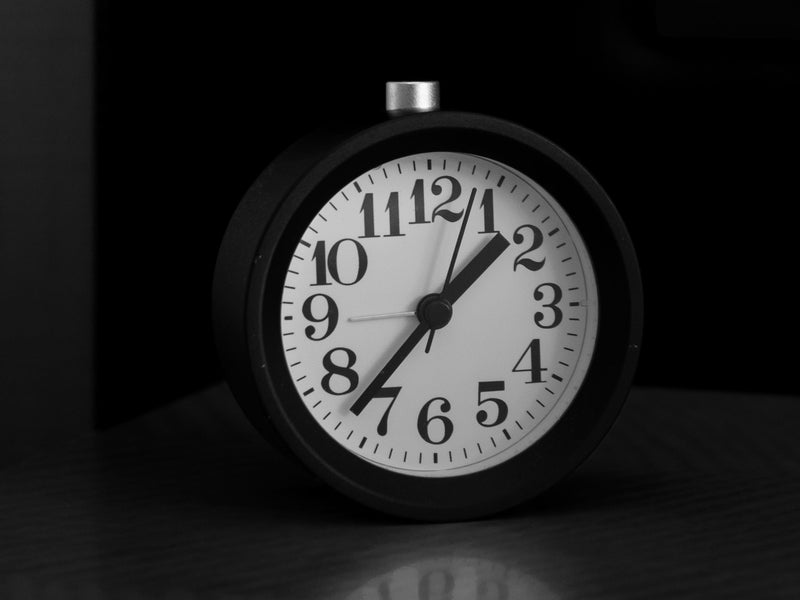Sugar Strikes Again: How Our Favorite Sweets Wreak Hormonal Havoc
We’re yet to see someone jump up and clap their hands about midlife hormone changes. In fact, working with your hormones so you can mitigate the negative effects and live your best midlife is what we’re all about. Part of that likely includes delicious little indulgences.
We have good news and, well, not-so-good news.
First the downer: Sugar can throw your hormones off balance, making perimenopause a pain.
Now the good news: Knowledge is power. If you’re being buffeted by the winds of hormonal change, building a healthy relationship with sugar can give you some sweet relief. We’re here to help you figure out a plan for hormonal balance and health.
While many cut sugar in this life phase for their weight, doing it for all of these other quality of life needs is even more compelling. At least, that’s what we’re reminding ourselves when the ice cream beckons.
Perimenopause and Hormone Changes
First, a refresher on perimenopause and how hormones change in women after 40.
Sometime between our late 30s and early 50s (but usually around 40ish), our bodies slow down on producing estrogen, progesterone and testosterone. And the stress hormone cortisol builds. After years of relatively predictable hormone cycles, our bodies start feeling unfamiliar. Some of the signs include:
- Erratic periods
- Mood swings
- Lower stress tolerance
- Vaginal dryness
- Low libido
- Elevated blood sugar
- Hot flashes & night sweats
If these changes are frustrating, confusing or even panic-inducing, you’re not alone. That’s why we’re here to help with products that both address the uncomfortable signs of perimenopause and help women balance hormones to support at the source.
Sugar & Hormones: The Science
There’s evidence that a diet high in sugar can inhibit the hormone production necessary for healthy cycles, no matter your life stage. As we get older, the relationship between sugar and hormones gets even more fraught. Remember how high blood sugar is associated with perimenopause? Here’s why.
Hormonal changes can lead to stress eating, a penchant for snacking and a hyperactive sweet tooth. Unfortunately, lowered hormone levels also impact insulin resistance, which means that we require more insulin to balance our blood sugar.
The irony is that just when we feel like going crazy on carbs, our bodies are less equipped to handle sugary snacks.
And the issues don’t stop there. Our bodies respond to heightened blood sugar by spiking insulin, which then lowers levels of a protein called sex hormone binding globulin (or SHBG for short). SHBG is supposed to help regulate estrogen levels, so its absence means that our estrogen levels soar and overtake progesterone. This imbalance is tied to:
- Insomnia
- Heightened stress
- Irritability
- Even more night sweats
To recap, hormone changes make us crave sugar, and eating lots of sugar brings on high blood sugar, which leads to insulin spikes, which lower SHBG production, which throws our estrogen and progesterone levels into disarray, which makes us feel bad. Yikes.
So, Sugar Isn’t Doing You Any Favors. Now What?
Many of the signs of high sugar intake are so common, we tend to consider them unavoidable parts of modern life. Like, who hasn’t felt heightened stress? Still, it doesn’t hurt to consider the ways that sugar could be contributing to our physical, mental and emotional well-being.
If you know that you’re in perimenopause and experiencing hormonal changes, it can be helpful to keep an eye on sugar intake. You may find that cutting back on sweets helps you ride the hormonal waves.
It’s also important to note that some women develop diabetes after age 40ish. This is correlated with hormonal changes, heightened insulin resistance and elevated blood sugar. It’s worth having a conversation with your doctor about hormones, sugar and diabetes. Additionally, women who already have diabetes may find that changes in estrogen & progesterone levels make their blood sugar less consistent, which means that their diabetes management may need fine tuning.
Sugar-Smart Habits
We’ve established that sugar can really mess with your hormones, and we hardly need to mention that this is a bummer. Without recommending that you remove all sweet treats from your life (we would never!), here are some ways you can build a healthier relationship with sugar and protect your hormones.
Choose whole grains and dark leafy greens - The more complex a carbohydrate, the less it will spike blood sugar. Whole grains provide a more gradual rise and fall in blood sugar, which our bodies are equipped to handle. Plus, whole grains are high in fiber! Win-win. Many experts in menopause recommend boosting fiber to 25 g daily.
Switch out sugary drinks and snacks - It’s time to get familiar with flavored and sparkling water. And when you can, replace sweets with nutritious snacks like nuts and fruits. Yes, fruits contain sugar, but it's unrefined. They’re also rich in vitamins and fiber-filled, which is more than we can say for Nutella.
TIP: Have a sweet tooth? Take heart. Gymnema sylvestre, found in our Stave the Crave chai, is an herb that can reduce sugar cravings.
Limit caffeine and alcohol - On top of the high sugar content in many caffeinated and alcoholic drinks, these beverages can mess with your cortisol levels and increase stress.
Exercise - We all know that movement is great for overall health. But did you know that exercise can increase your body’s insulin sensitivity? This means that when you have good exercise habits, your body processes sugar more effectively and it's less likely to spike in your system. Many experts recommend prioritizing weight lifting, body resistance training and yoga in this life phase to aid bone density, support long-term mobility and yes, keep your metabolism on high.
TIP: Check out this blog for ideas on incorporating movement into your day.
Reduce Stress - Reducing stress can help your body digest and process food. It’s also worth noting that if you’re not stressed, you’re probably not stress eating. We know that curbing stress is way easier said than done, but these blogs have great resources for embracing calm:
- Understanding Your Stress Response
- Real-World Lifestyle Changes to Beat Burnout
- What Is the Best Natural Remedy for Stress & Anxiety
TIP: Need a hand winding down? Our Women’s Stress supplement and Calm & Collected drink mix can give you a little herbal help that makes a big difference. Our Perimenopause Support supplement can also improve stress resilience.
Wile Products for Hormone Support
We recognize that there’s no one approach to balancing sugar, hormones and behaviors that will be perfect for everyone. That’s why our products address both “symptoms” and the hormones that control them.
For all-over hormonal support, check out:
Need help de-stressing? These could be for you:
Time to kick your cravings to the curb? Try:
A Note About Diet Culture
We’ve said it before and we’ll say it again: we’re not interested in diet culture nonsense. We’re here to help you feel your best and find your joy. Be your size! Take up space! Enjoy life! Have a slice of cake! Move your body in a way that makes you feel good! It’s all about balance, babe.
Clinical Research
- Dormire, Sharon L., and Chularat Howharn. “The Effect of Dietary Intake on Hot Flashes in Menopausal Women.” Journal of Obstetric, Gynecologic, & Neonatal Nursing 36, no. 3 (May 1, 2007): 255–62. https://doi.org/10.1111/j.1552-6909.2007.00142.x.
- Huang, Zhengxi, Jialing Tang, and Kai Ji. “Exercise Prevents HFD-Induced Insulin Resistance Risk: Involvement of TNF-α Level Regulated by Vagus Nerve-Related Anti-Inflammatory Pathway in the Spleen.” Diabetology & Metabolic Syndrome 13, no. 1 (January 1, 2021). https://doi.org/10.1186/s13098-021-00712-w.
- Thurston, Rebecca C., Samar R. El Khoudary, Kim Sutton-Tyrrell, Carolyn J. Crandall, Barbara Sternfeld, Hadine Joffe, Ellen B. Gold, Faith Selzer, and Karen A. Matthews. “Vasomotor Symptoms and Insulin Resistance in the Study of Women’s Health Across the Nation.” The Journal of Clinical Endocrinology and Metabolism 97, no. 10 (July 31, 2012): 3487–94. https://doi.org/10.1210/jc.2012-1410.
- Volk, Katrina M, Veronika V. Pogrebna, Jackson R. Roberts, Jennifer E. Zachry, Sarah Ganz Blythe, and Natalia Toporikova. “High-Fat, High-Sugar Diet Disrupts the Preovulatory Hormone Surge and Induces Cystic Ovaries in Cycling Female Rats.” Journal of the Endocrine Society 1, no. 12 (November 2, 2017): 1488–1505. https://doi.org/10.1210/js.2017-00305.
Sources
- Arora, Sarika, MD. “Is Sugar Sabotaging Your Hormones?” Women’s Health Network, March 13, 2023. https://www.womenshealthnetwork.com/hormonal-imbalance/hormonal-imbalance-caused-by-sugar/.
- Gemino, Marilyn. “The Sneaky Way Sugar Can Lead to Hormone Imbalance.” Garden of Life, October 27, 2022. https://www.gardenoflife.com/blog/sneaky-way-sugar-can-lead-hormone-imbalance.
- Lang, Ariane. “10 Natural Ways to Balance Your Hormones.” Healthline, January 31, 2022. https://www.healthline.com/nutrition/balance-hormones.
Image courtesy of Mathilde Langevin via Unsplash
This article is intended for informational purposes and is not intended to replace a one-on-one medical consultation with a professional. Wile, Inc researches and shares information and advice from our own research and advisors. We encourage every woman to research, ask questions and speak to a trusted health care professional to make her own best decisions.




